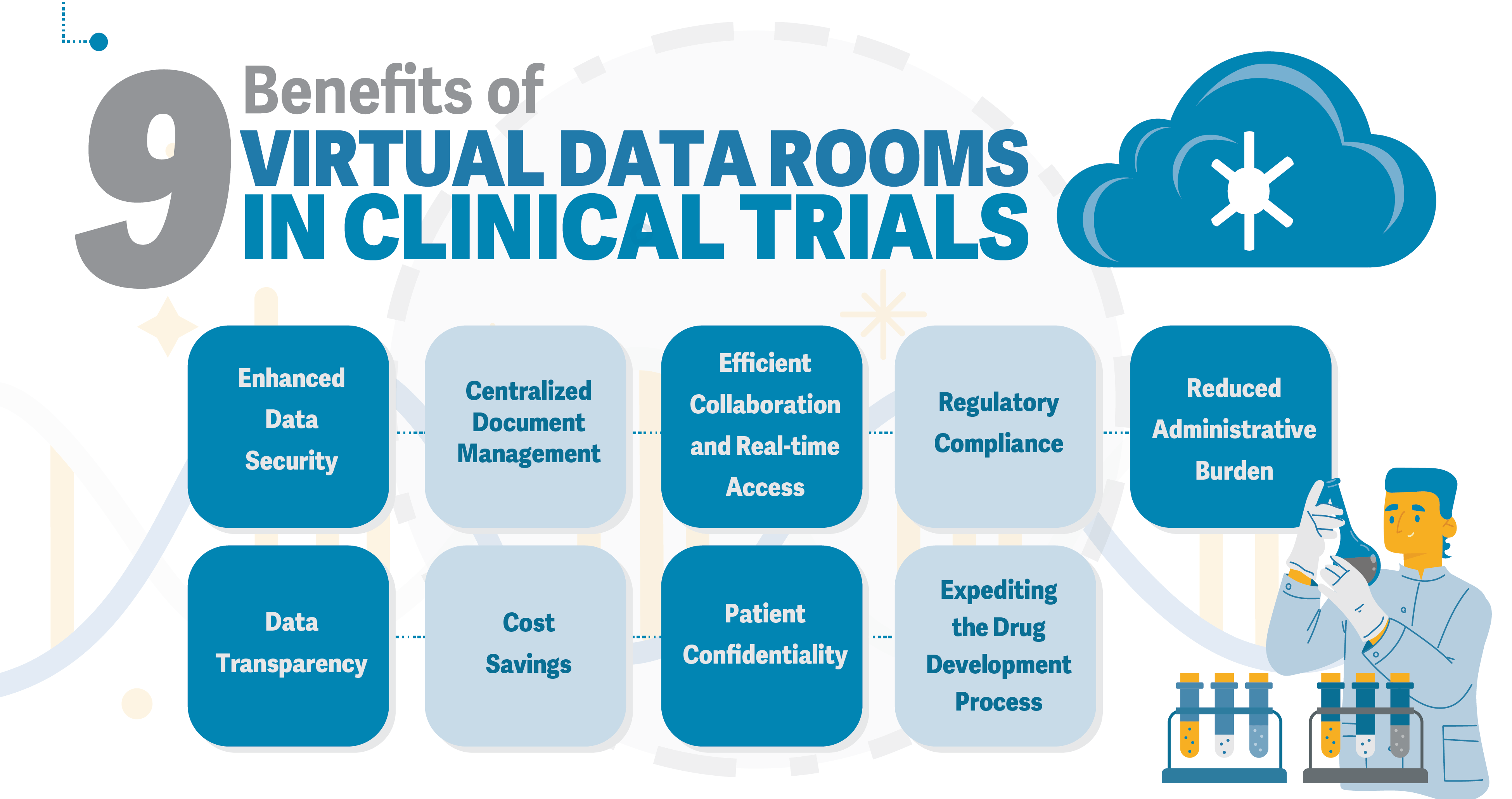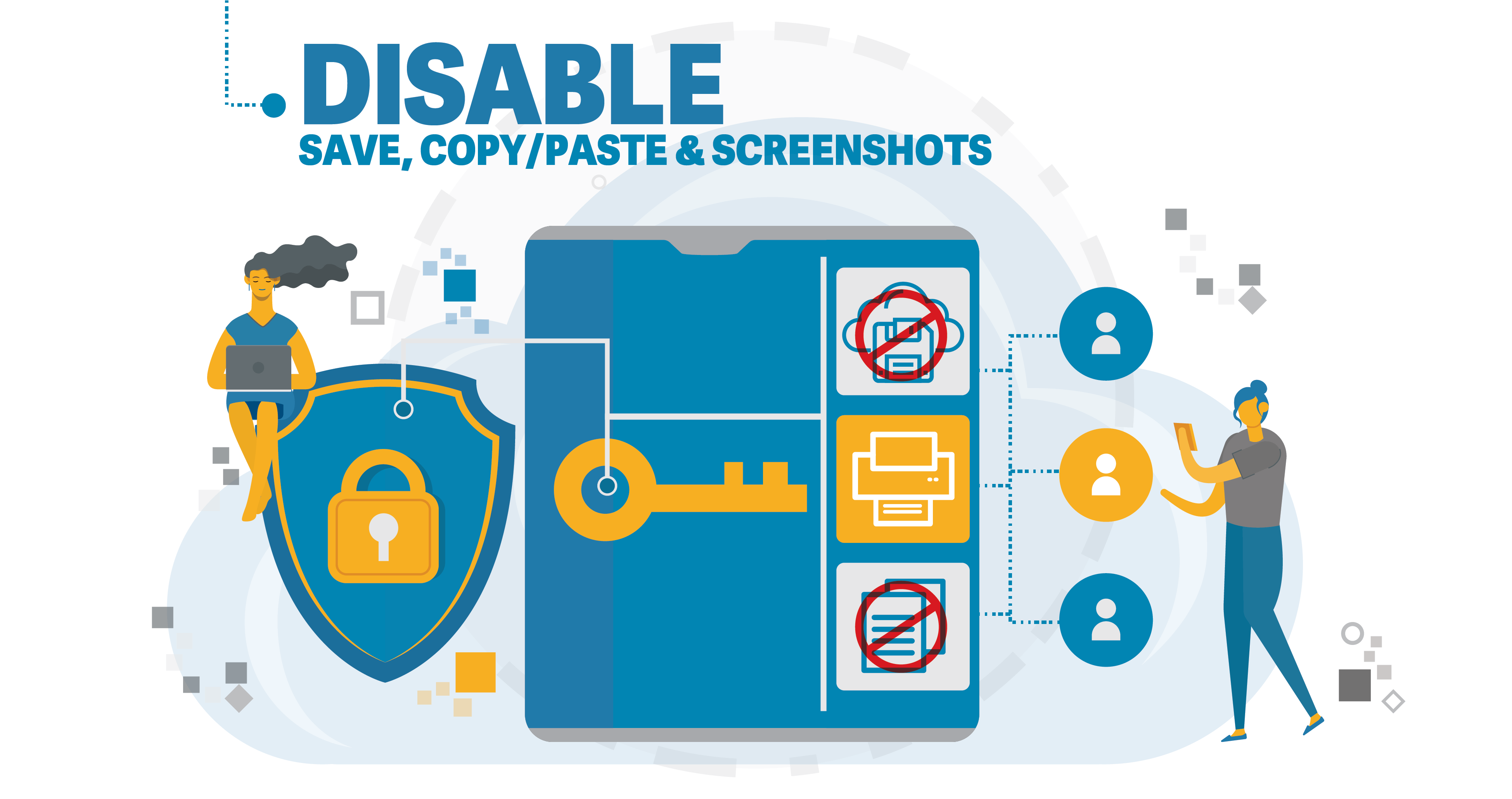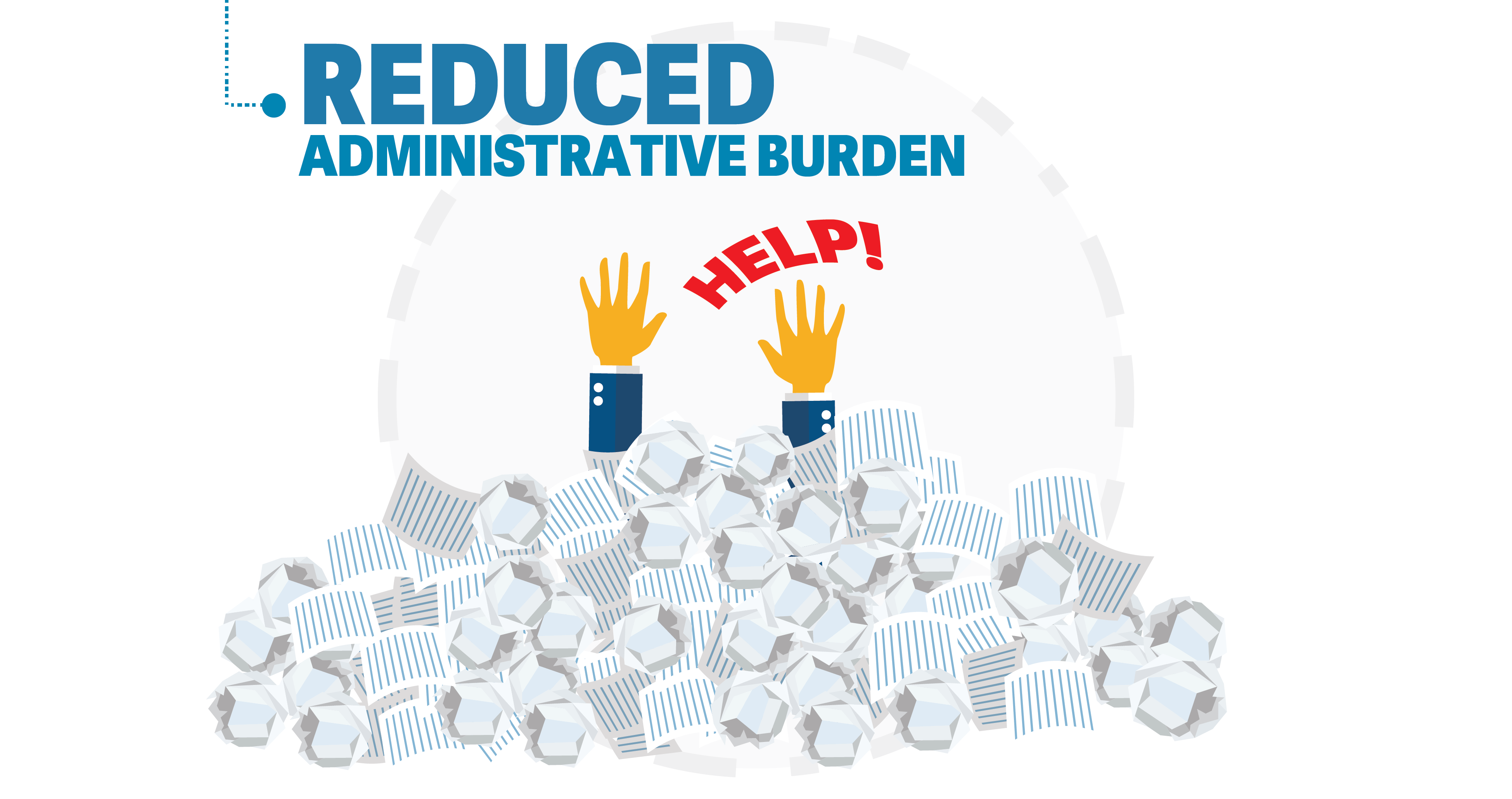Clinical trials are a cornerstone of medical research and development, enabling the advancement of healthcare by testing the safety and efficacy of new treatments, drugs, and medical interventions. These trials generate massive amounts of sensitive and confidential data that need to be managed, stored, and shared securely among various stakeholders, including researchers, sponsors, regulatory bodies, and ethics committees. This is where a virtual data rooms (VDR) steps in to streamline the process and ensure the smooth execution of clinical trials.
What are Virtual Data Rooms?
A virtual data room is an online platform designed to securely store, manage, and share sensitive information. Originally used in the financial and legal sectors for due diligence and mergers and acquisitions, VDRs have found applications across various industries, including healthcare and life sciences. These digital repositories provide a secure and efficient way to organize and exchange documents and data without the need for physical presence or extensive paperwork.
The Challenge of Clinical Trials
Clinical trials play a pivotal role in advancing medical knowledge and bringing new treatments to market. However, they are not without their challenges. One major hurdle is the management of vast amounts of sensitive and complex data generated throughout the trial process. This data includes patient information, drug efficacy results, adverse events reports, and regulatory documents. Ensuring the security, accessibility, and transparency of this data for all stakeholders, including researchers, regulatory agencies, sponsors, and trial participants is crucial. This is where a virtual data room (VDR) proves invaluable. A VDR can streamline data management by centralizing all trial-related documents in one secure location. It offers controlled access, customizable permissions, and audit trails, allowing authorized parties to access and review information in a regulated and efficient manner. This not only enhances data security and compliance but also expedites decision-making processes, accelerates communication among stakeholders, and ultimately contributes to the overall success of the trial.

Benefits of Virtual Data Rooms in Clinical Trials

Enhanced Data Security: Data security is paramount in clinical trials due to the sensitive nature of patient information and intellectual property. VDRs offer robust security features such as encryption, multi-factor authentication, access controls, and audit trails. These measures ensure that only authorized personnel can access, view, or modify the data. Additional data room security features might include:
- Remote Shredding: Virtual data room equipped with Information Rights Management (IRM) technology gives administrators the ability to revoke a user’s access to a document, even after it’s been downloaded.
- Granular Access Controls: Advanced access controls give administrators the ability to customize document security policies based on the user, group, or folder.
- Secure Printing: This security feature allows printing to physical printers while preventing printing to PDF. This provides an additional security countermeasure since printing to PDF is the equivalent of being able to save a digital copy of the document which can then be distributed electronically.
- Dynamic Watermarking: Many VDR platforms allow administrators to apply customized, dynamic watermarks to each page of protected documents and spreadsheets, as well as to protected videos. Watermarks are clearly visible, applied diagonally across the page or screen, yet do not interfere with the readability of the underlying text. The watermark text is customizable, and can contain the following dynamic information:
- User’s name
- User's email address
- User's IP address
- Current date
- Current time
- Expiration Date and Time: Policies can be configured to expire file permissions either on an absolute date or after a relative delay (number of days) from the date / time the files were uploaded. After expiration, the corresponding users will no longer be able to access files to which the policy has been assigned.
- Disable Print, Save, Copy/Paste, and Screenshots: Administrators can customize security policies to define exactly what users are allowed to do, or not do, with a document.

- Comprehensive Audit Trail: Audit trials give administrators insight into who is reading documents, what they access and when, providing valuable deal intelligence that can lead to better outcomes.
Centralized Document Management: Virtual data rooms (VDRs) play an indispensable role in streamlining and enhancing document management for clinical trials. These sophisticated digital platforms provide a secure and centralized space where pharmaceutical companies, research organizations, and regulatory bodies can efficiently store, organize, and share a vast array of sensitive trial-related documents. VDRs offer robust features such as granular access controls, version tracking, and audit trails, ensuring that only authorized personnel can access specific documents and modifications are traceable. This is particularly crucial in the context of clinical trials, where maintaining the confidentiality, integrity, and compliance of documents is paramount. Researchers, investigators, and regulatory teams can collaborate seamlessly across geographical boundaries, accelerating decision-making processes and expediting trial timelines. The advanced search and indexing capabilities of VDRs also aid in quickly locating critical information, simplifying the review process and contributing to the overall efficiency and success of clinical trials.
Efficient Collaboration and Real-time Access: Clinical trials require collaboration among various parties, including researchers, contract research organizations (CROs), ethics committees, and regulatory agencies. VDRs enable real-time collaboration by allowing multiple users to access and work on documents simultaneously, irrespective of their geographic location. VDRs ensure that participants can access the necessary documents and data at any time, facilitating seamless communication and decision-making.
Regulatory Compliance: Clinical trials are subject to strict regulatory standards and guidelines imposed by health authorities. Virtual data rooms provide a centralized repository for storing, managing, and sharing sensitive trial-related documents and data. Regulatory compliance demands meticulous documentation and adherence to stringent guidelines, which virtual data rooms facilitate by offering controlled access, robust encryption, and audit trails. Stakeholders including researchers, sponsors, ethics committees, and regulatory authorities can collaboratively access necessary information while adhering to the necessary permissions and confidentiality levels.
The real-time monitoring and reporting features of virtual data rooms empower clinical trial teams to swiftly respond to compliance inquiries and provide accurate documentation for inspections. Thus, these technological solutions not only enhance data security but also streamline the compliance process, ultimately expediting the development of safe and effective treatments for various medical conditions.
Reduced Administrative Burden: Traditional paper-based documentation and physical data storage require significant administrative effort. VDRs reduce this burden by offering automated workflows, document indexing, and search functionalities that save time and resources.

Data Transparency: Transparency is key in clinical trials to maintain the integrity of research and build trust among stakeholders. VDRs allow for controlled sharing of data with external parties, ensuring transparency while maintaining data security.
Cost Savings: Adopting virtual data rooms can result in cost savings by eliminating the need for physical document storage, printing, courier services, and travel. Additionally, streamlined collaboration can accelerate trial timelines, reducing associated costs.
Patient Confidentiality:During clinical trials, patient information must be kept secure at all times. The HIPAA Privacy Rule is designed to assure PHI (Personal Health Information) protection for the covered entities—ensuring patients’ rights are never compromised. Any leak of information puts organizations at risk of potential lawsuits and it damages their status of compliance and reputation. While advances in digital technology have greatly aided in clinical trials, they have also given rise to information security threats. As secure document sharing is necessary during clinical trials, a virtual data room can be used to ensure PHI protection and patient confidentiality, while enabling safe, convenient sharing of information with parties who do not have access to EHR.
Expediting the Drug Development Process: Virtual data rooms can play a pivotal role in expediting the drug development process by revolutionizing the way pharmaceutical companies manage and share critical information. These secure online platforms provide a streamlined and collaborative environment for storing, organizing, and exchanging sensitive data, such as clinical trial results, regulatory documentation, intellectual property, and research findings. This real-time accessibility enhances communication and collaboration among multidisciplinary teams, geographically dispersed stakeholders, and external partners, thus accelerating decision-making and problem-solving.
Additionally, virtual data rooms offer robust security measures, ensuring that confidential information remains protected during all stages of drug development. By facilitating seamless information exchange, enhancing data security, and promoting efficient teamwork, virtual data rooms significantly reduce administrative bottlenecks and information silos, ultimately expediting the drug development lifecycle and contributing to bringing new therapies to market more swiftly and at reduced costs.
Conclusion
In the rapidly evolving landscape of clinical research and development, leveraging technology to streamline processes is crucial. Virtual data rooms have emerged as indispensable tools for managing the vast amounts of sensitive data generated by clinical trials.
By providing enhanced security, efficient collaboration, centralized document management, and regulatory compliance support, VDRs contribute to the successful execution of clinical trials while maintaining the highest standards of data privacy and integrity. As the healthcare industry continues to embrace digital transformation, virtual data rooms are poised to play a pivotal role in shaping the future of clinical trials.
ShareVault has been providing organizations of all types and sizes with secure document sharing solutions for over 15 years.
